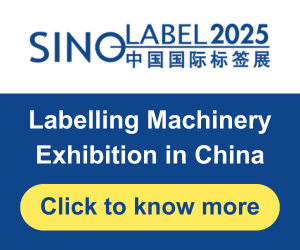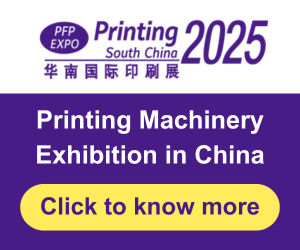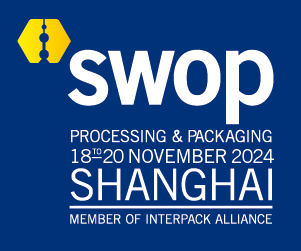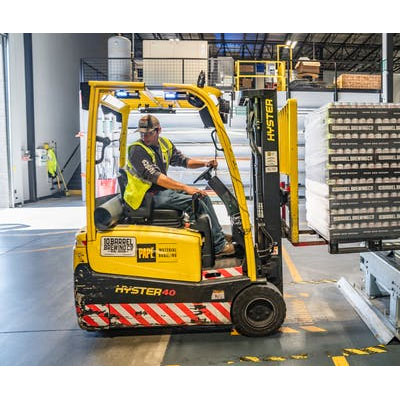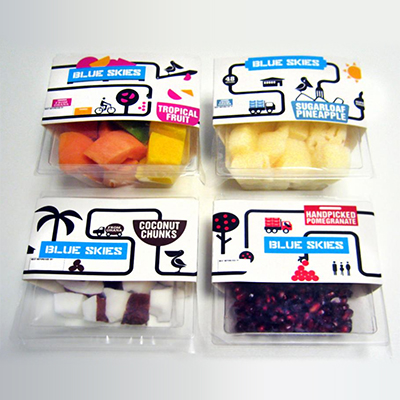Efficiency Unleashed: The Role of Labeling Machinery in Modern Industries
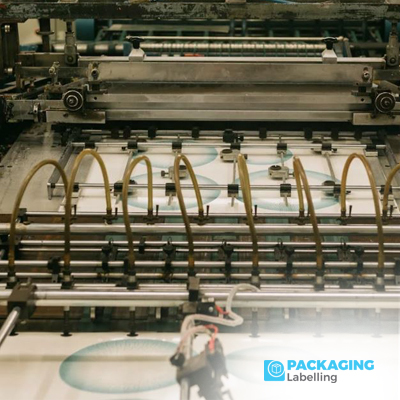
In the fast-paced world of modern industries, efficiency is not just a buzzword; it's a necessity for survival and growth. One critical aspect of enhancing efficiency is the use of advanced labeling machinery. These machines play a pivotal role in streamlining processes, ensuring compliance, and enhancing product visibility. In this article, we delve into the significance of labeling machinery in various industries, their impact on efficiency, and the latest trends shaping this essential technology.
Understanding Labeling Machinery
Labeling machinery encompasses a range of automated systems designed to apply labels accurately and efficiently to products, packages, or containers. These machines have evolved significantly, incorporating advanced technologies such as RFID (Radio-Frequency Identification), IoT (Internet of Things) integration, and AI-driven automation. The primary types of labeling machinery include:
Labeling machinery has evolved to encompass various types, each tailored to specific labeling needs in modern industries. Pressure-sensitive labelers are adept at applying adhesive-backed labels with precision, ensuring a secure attachment to products. Sleeve labelers, on the other hand, excel in labeling containers with irregular shapes by using heat to shrink plastic sleeves onto products, creating a seamless and visually appealing labeling solution. Print and apply labelers merge printing capabilities with labeling functions, enabling the printing of variable data like barcodes and QR codes before applying labels to items. Wrap-around labelers find extensive use in the beverage and pharmaceutical sectors, applying labels that completely encircle products, offering 360-degree branding and information display. Lastly, top and bottom labelers are designed for efficiency in labeling packages with varying surfaces, simultaneously applying labels on both the top and bottom surfaces of products. Each type of labeling machinery plays a crucial role in streamlining labeling processes and enhancing product visibility in diverse industrial settings.
Key Benefits of Labeling Machinery
Labeling machinery offers a multitude of benefits that contribute to operational efficiency and product quality. Firstly, these machines ensure accuracy by consistently placing and aligning labels, reducing errors and enhancing the overall product presentation. Secondly, automated labeling processes significantly increase production speeds, allowing industries to meet high-demand requirements without compromising quality. Thirdly, labeling machinery aids in compliance by incorporating built-in validation and verification features, helping industries adhere to regulatory standards and labeling requirements, thus minimizing risks of non-compliance. Moreover, modern labeling machines are highly versatile, capable of handling various label types, sizes, and materials, catering to diverse product labeling needs. Finally, precision labeling leads to waste reduction, minimizing material wastage and contributing to cost savings and sustainable practices within the manufacturing process. These benefits collectively highlight the crucial role of labeling machinery in enhancing efficiency and quality across industries.
Applications across Industries
The impact of labeling machinery extends across a wide spectrum of industries, including but not limited to:
Labeling machinery serves diverse industries, each benefiting from its specific applications. In the food and beverage sector, these machines are crucial for ensuring food safety by accurately labeling ingredients, nutritional information, and expiry dates. Beverage production particularly relies on labeling machinery for bottles, cans, and packaging, delivering speed and precision in labeling processes.
In pharmaceuticals, compliance with stringent labeling regulations is paramount. Labeling machinery plays a pivotal role in labeling medication packaging with clear dosage instructions, batch numbers, and barcodes for traceability, ensuring adherence to regulatory standards.
The cosmetics and personal care industry heavily relies on product labeling for brand identity and regulatory compliance. Labeling machinery applies labels to bottles, jars, and tubes, showcasing product details and enhancing shelf appeal, thus contributing to market competitiveness.
Automotive and manufacturing sectors leverage labeling systems for traceability and safety. These machines label automotive parts for traceability and apply warning labels on machinery, ensuring safety, compliance, and quality control within manufacturing environments.
Efficient labeling is critical in retail for inventory management, pricing, and product identification. In logistics, labeling machinery facilitates accurate labeling of packages, improving tracking and shipment handling, thus optimizing supply chain operations. Overall, labeling machinery plays a fundamental role across industries, enhancing efficiency, compliance, and product presentation.
Trends Shaping Labeling Machinery
The evolution of labeling machinery is driven by several key trends that are shaping the future of this technology:
Labeling machinery is undergoing a transformational integration with Industry 4.0, marking a shift towards smarter factory environments. These machines are leveraging IoT connectivity for real-time monitoring, predictive maintenance, and data-driven decision-making, enhancing operational efficiency and reliability in manufacturing processes.
Advanced labeling systems are harnessing the power of AI and machine learning algorithms to optimize labeling processes further. These systems adapt to product variations, enhance quality control through image recognition and analysis, and continuously improve labeling accuracy and consistency.
The sustainability focus in labeling solutions is driving the adoption of eco-friendly practices.
Biodegradable labels and recyclable materials are gaining prominence, aligning with the growing sustainability initiatives across industries. This shift towards sustainable labeling solutions contributes to reducing environmental impact and promoting responsible manufacturing practices.
Mobile labeling solutions are revolutionizing labeling operations by offering on-the-go capabilities and flexibility. Mobile labeling apps and handheld devices enable remote monitoring, allowing for seamless labeling operations in dynamic work environments. This mobility enhances productivity and operational agility in labeling processes.
Customization and personalization are key trends driving innovation in labeling machinery. Brands are increasingly adopting customized labeling solutions to create unique experiences for consumers. Labeling machinery is catering to this demand by offering customization options for labels and packaging designs, empowering brands to differentiate themselves in competitive markets and connect with consumers on a personalized level.
Challenges and Considerations:
While labeling machinery offers substantial benefits, there are challenges and considerations that industries must address:
Implementing labeling machinery comes with several considerations and challenges that businesses must address for successful deployment and operation. Firstly, the initial investment in labeling machinery and integration with existing systems can be a significant upfront cost, necessitating careful financial planning to ensure a smooth transition and return on investment.
Regular maintenance and upkeep are essential for labeling machines to ensure optimal performance and avoid downtime that can disrupt production schedules. This includes routine calibration and inspections to address any issues promptly and maintain efficiency in labeling processes.
Training and skill development are crucial aspects of operating labeling machinery effectively.
Operators and maintenance personnel need comprehensive training to operate and troubleshoot labeling machines, emphasizing the importance of ongoing skill development to maximize machine utilization and minimize operational disruptions.
Staying compliant with evolving regulatory requirements and standards is imperative in labeling practices. Businesses must keep abreast of regulatory changes related to labeling to avoid penalties and ensure legal compliance, requiring continuous monitoring and adaptation of labeling processes.
Integration challenges also arise when integrating labeling machinery with other systems such as ERP (Enterprise Resource Planning) and MES (Manufacturing Execution Systems). Seamless integration strategies are necessary to maximize efficiency and data accuracy, ensuring smooth data flow and communication between different systems for streamlined labeling operations.
Addressing these considerations and challenges is essential for businesses to successfully implement and leverage labeling machinery for enhanced efficiency, compliance, and operational excellence in manufacturing and production environments.
Future Outlook and Conclusion
The future of labeling machinery is poised for continued innovation and integration with advanced technologies. From AI-driven labeling systems to sustainable labeling solutions, industries can expect enhanced efficiency, compliance, and customization options. As industries evolve, the role of labeling machinery will remain integral in ensuring product traceability, brand integrity, and operational excellence.
In conclusion, labeling machinery is not just a tool for applying stickers; it's a cornerstone of modern industrial efficiency. By embracing the latest labeling technologies and best practices, industries can unleash efficiency, improve product quality, and stay ahead in competitive markets.




